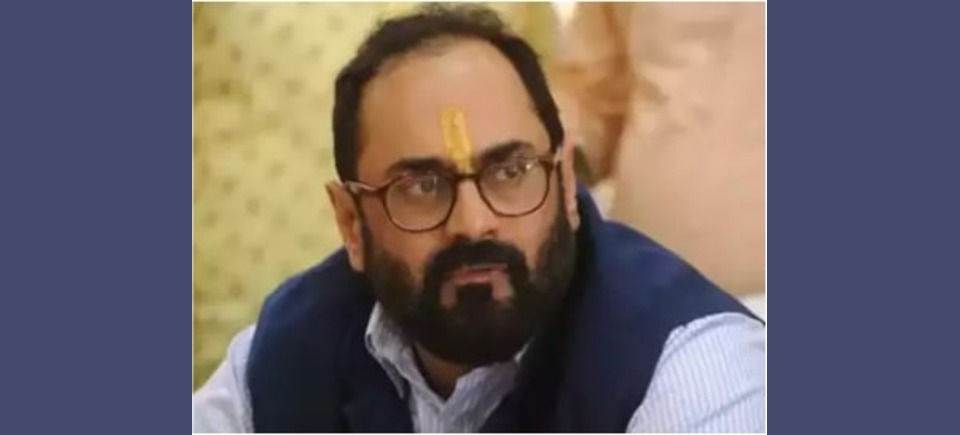The post-COVID world presents a ”Y2K-like” moment for Indian IT firms, and the industry needs to play a bigger role in tackling skilling-related challenges to ensure that this huge opportunity can be seized, Minister of State for Electronics and IT Rajeev Chandrasekhar said on Wednesday.
The minister also highlighted how the fintech segment in the country has expanded the economy, created unicorns, and put India in a leading position in terms of the platforms and solutions that are being developed.
Speaking at the Global FinTech Festival (GFF) 2021, Chandrasekhar said the IT industry “needs to invest a little bit more capital in this (skilling), and invest a lot more smarts, in terms of predicting which direction the skilling requirements need to come from”.
He noted that there is some “misreading or under the reading of demand” and tech companies that had huge bench strength and were complaining about not having enough work to do a few years back, are now hiring from overseas and pay large amounts to retain talent.
“The world has dramatically changed the rapid pace of digitisation has just gone through the roof, and therefore the demand for digitisation and talent is also going to commensurately go sky high…we must recognise that we are in the post COVID world, in almost a Y2K-like moment for the Indian tech space,” he said.
The minister further said: “We are at an unprecedented inflection point in terms of opportunities for growth. If we don”t make the move quickly, somebody else will take this breakfast and lunch”. Post Y2K, India became one of the biggest IT destinations for enterprises globally with its pricing competitiveness and quality talent.
Chandrasekhar emphasised that the approach towards skilling and talent creation “has to be very proactive and industry-led”, and added that the government has extended support by creating a network of training centres around the country.
“…industry and industry associations have to step up, I think, and do a lot more, especially in this post COVID era. We are 100 per cent committed to putting our money into the budget for training and skilling, expanding the network…the industry needs to seize this opportunity and look at skilling as a big challenge for which they need to play a bigger role,” he said.
Talking about the fintech segment, Chandrasekhar said the financial sector has “dramatically transformed to include fintech as a very critical, integral component of the financial economy”.
“It has expanded opportunities for entrepreneurship, innovation, and jobs. Without doubt, it is now receiving large doses of investment – both domestic and foreign, it has created entrepreneurship, unicorns, leading-edge, confident, ambitious entrepreneurs who are going out there and unambiguously leading the world in terms of the platforms and solutions that they are putting out there,” he added.
Chandrasekhar said he considered fintech to be a “classic example of a combination of government policymaking and the power of entrepreneurship, working to deliver on more than one objective”.
“The qualitative improvement in the quality of our economy, quality of our financial economy has not been written about enough…this (fintech) is a great emerging space, and I hope we continue to see innovation leadership…” he said.


